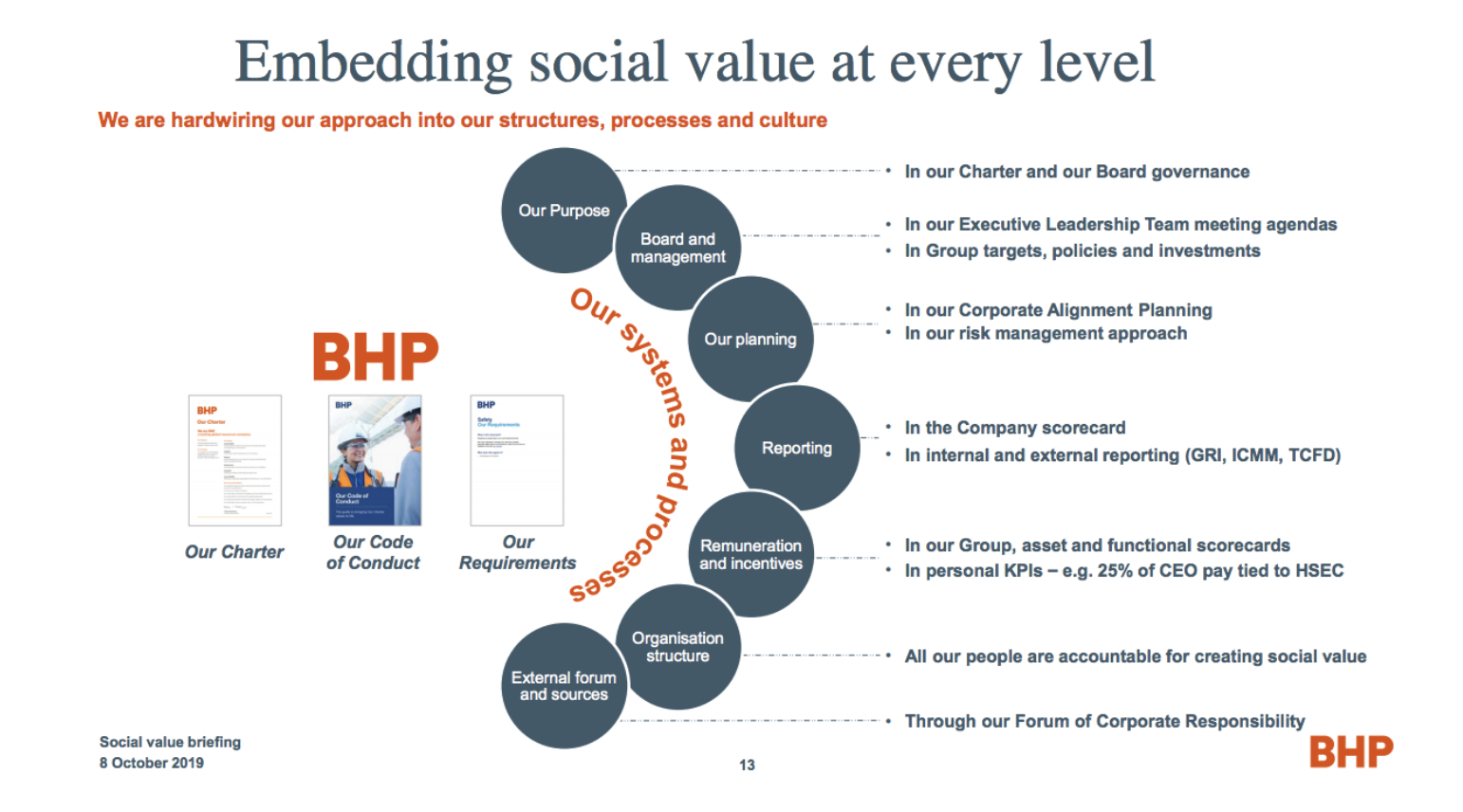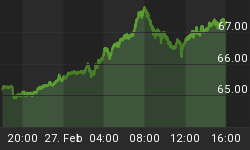BHP (ASX, NYSE:BHP), the world’s largest miner, is stepping up efforts to reassure investors that the company is committed not only to protecting the environment, but to ensure its operations deliver “social value.”
The company, which recently committed to invest $400 million over five years to reduce greenhouse gas emissions from its operations and commodities, believes that a key component of being able to deliver financial value is to “hardwire” local interests into its decision-making processes.
“In order to deliver financial value, you have to deliver social value. The two are completely intertwined,” BHP’s chief external affairs officer, Geoff Healy, said on Tuesday. “This is just good, sensible business.”
Healy noted the company is moving from a position of keeping a social licence to creating value to the communities involved and affected by its operations.
The idea is to add a social value assessment to the five-year business plans at all of BHP’s operations. That will be linked to the company-wide scorecard that determines employee bonuses and so help embed the aspect in the miner’s business model.
The move follows a series of recent steps BHP has been taking to become an environmentally friendly company, including carbon capture and storage and other innovations such as direct air capture.
The Melbourne, Australia-based giant has also been moving away from thermal coal, which currently makes up about 5% of its revenue. Related: NYU Professor: Tesla Could Lose 80% Of Its Value
Healy’s speech comes after a survey of global mining companies by Ernst & Young identified “maintaining a social licence,” or how much a company’s business practices are accepted by employees, interest groups and the overall public, among the top risks facing miners.

(Click to enlarge)
It also follows Rio Tinto’s pact with China’s biggest steelmaker Baowu to develop and implement ways to reduce carbon emissions in the steel sector, which is responsible for about 9% of global carbon dioxide (CO2) emissions.
Demonstrating a commitment to social value, Healy noted, could help BHP keep a competitive advantage by accessing the “best talent, the best resources and the best markets.”
“While our foundations are strong, we know that change is accelerating, and so must we – to stay competitive,” he said.
By effectively tackling climate change and delivering social value, BHP believes the industry will be more likely to attract the young digital-savvy workers it needs.
















